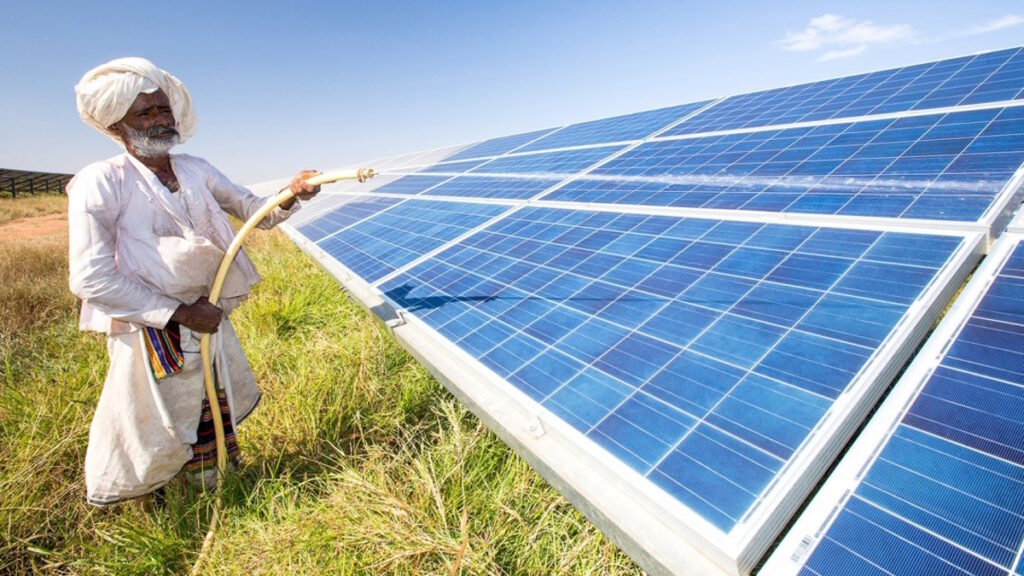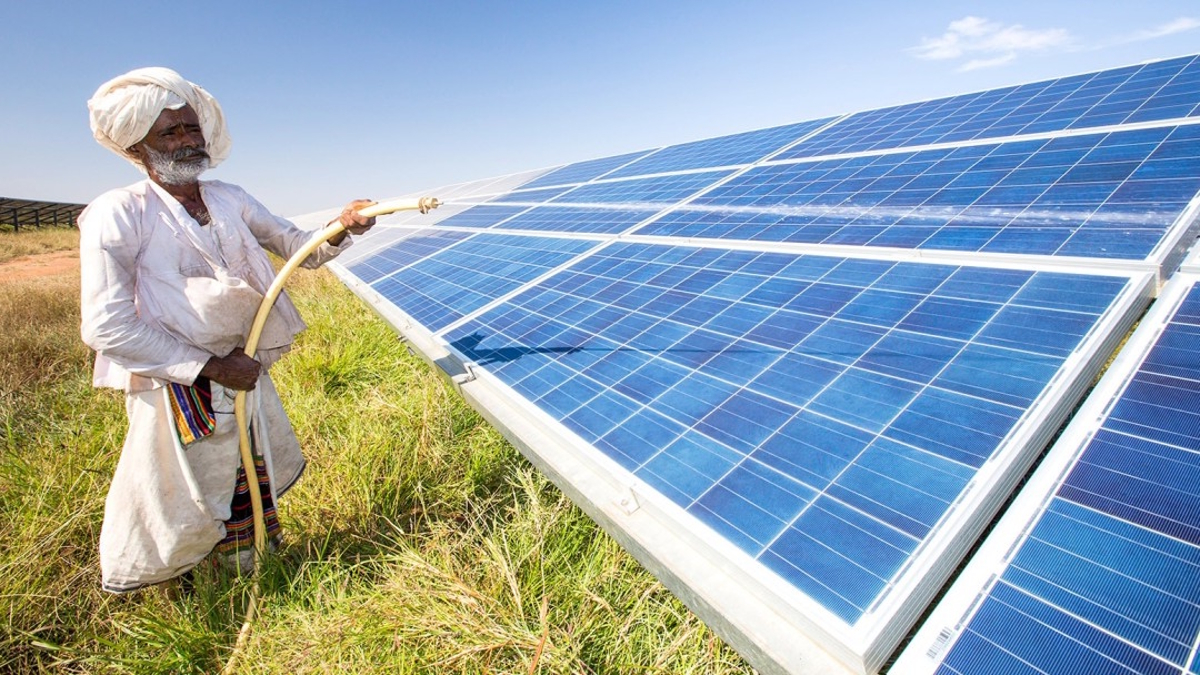November 20, 2024, New Delhi
India is at the forefront of a global shift toward renewable energy, setting ambitious targets to reduce its carbon footprint and meet the growing energy demands of its population of over 1.4 billion. With a commitment to achieving 500 GW of renewable energy capacity by 2030, India is the third-largest producer of renewable energy globally, following China and the United States. Despite its impressive progress, challenges such as a skilled labor shortage, funding gaps, and dependency on imports pose significant hurdles.

Table of Contents
Renewable Energy in India: The Current Landscape
India’s renewable energy sector, which includes solar, wind, hydropower, and biomass, currently contributes over 42% to its total energy mix. The country has been a global leader in solar energy production, with over 70 GW of installed solar capacity, thanks to initiatives like the National Solar Mission and investments from both private and public sectors.
Wind energy, another critical component, has seen steady growth, particularly in Tamil Nadu, Gujarat, and Maharashtra. India’s geographic diversity has enabled it to harness a wide range of renewable energy resources, making it a key player in the global energy transition.
However, despite these advances, India faces multiple barriers in its journey toward sustainability.
Key Challenges Facing India’s Renewable Energy Goals
- Skilled Workforce Shortage: The renewable energy sector is projected to require over 1.5 million skilled professionals by 2030. Currently, the sector faces a gap of approximately 1.2 million workers, which threatens to slow down project implementation. Training and upskilling initiatives remain underfunded, limiting the potential of the workforce.
- Dependence on Imports: Although India has imposed tariffs on Chinese imports and incentivized local manufacturing through initiatives like the Production Linked Incentive (PLI) scheme, the dependency on imported solar panels and batteries remains high. This reliance not only increases costs but also exposes the sector to geopolitical risks.
- Financial Constraints: While the government has announced over $3 billion in incentives for renewable energy projects, experts argue that the funds are insufficient to meet the massive capital requirements of the sector. High upfront costs for infrastructure and limited access to low-interest loans add to the financial strain.
- Infrastructure and Policy Bottlenecks: Land acquisition, grid integration, and regulatory delays continue to impede large-scale renewable energy projects. Inadequate transmission infrastructure has resulted in power generation facilities running below capacity, further delaying returns on investment.
Opportunities and Strategic Initiatives
Despite these challenges, India’s renewable energy sector offers immense opportunities for growth. Here’s how the nation is tackling the roadblocks:
- Focus on Skill Development: The government has launched the Skill Council for Green Jobs (SCGJ) to bridge the workforce gap. Partnerships with international organizations and private companies are also being explored to fund large-scale training programs.
- Boosting Domestic Manufacturing: The PLI scheme has incentivized domestic manufacturing of solar photovoltaic cells and advanced battery storage systems. This move is expected to reduce dependency on imports and enhance the competitiveness of Indian manufacturers in global markets.
- Green Hydrogen Revolution: India’s focus on green hydrogen as a fuel of the future is gaining momentum. Pilot projects in states like Gujarat and Rajasthan are underway to produce hydrogen using renewable energy, aiming to decarbonize industries such as steel and cement.
- Global Partnerships: Strategic collaborations with countries like the United States, Australia, and Germany have opened new avenues for technological exchange and investment in renewable energy. India’s role in international initiatives like the International Solar Alliance (ISA) further bolsters its global standing.
- Innovative Financing Models: Private sector investments are being encouraged through green bonds and renewable energy investment trusts (REITs). Public-private partnerships (PPPs) are also being promoted to bridge funding gaps for large-scale projects.
Why Renewable Energy Matters for India
As the world’s third-largest carbon emitter, India’s transition to renewable energy is critical for mitigating the effects of climate change. Beyond environmental benefits, renewable energy offers economic advantages, including job creation, energy security, and reduced dependence on fossil fuel imports. For a country with a growing urban population and increasing energy needs, the shift to sustainable energy sources is both a necessity and an opportunity.
Looking Ahead
India’s renewable energy journey is a testament to its commitment to sustainable development. While the challenges are significant, the country’s strategic initiatives and international collaborations have positioned it as a leader in the global energy transition.
The next decade will be crucial for India as it seeks to balance rapid economic growth with environmental sustainability. The renewable energy sector has the potential to not only meet India’s energy needs but also set an example for other nations aiming to achieve a low-carbon future.
Stay updated on India’s renewable energy milestones and other major developments by following our latest stories.




